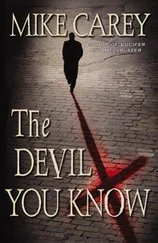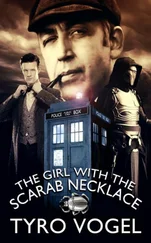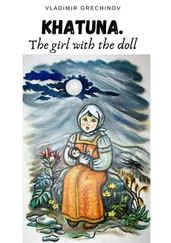Mike Carey - The Girl With All the Gifts
Здесь есть возможность читать онлайн «Mike Carey - The Girl With All the Gifts» весь текст электронной книги совершенно бесплатно (целиком полную версию без сокращений). В некоторых случаях можно слушать аудио, скачать через торрент в формате fb2 и присутствует краткое содержание. Год выпуска: 2014, ISBN: 2014, Издательство: Orbit, Жанр: Фантастика и фэнтези, на английском языке. Описание произведения, (предисловие) а так же отзывы посетителей доступны на портале библиотеки ЛибКат.
- Название:The Girl With All the Gifts
- Автор:
- Издательство:Orbit
- Жанр:
- Год:2014
- ISBN:978-0-316-27814-0
- Рейтинг книги:5 / 5. Голосов: 1
-
Избранное:Добавить в избранное
- Отзывы:
-
Ваша оценка:
- 100
- 1
- 2
- 3
- 4
- 5
The Girl With All the Gifts: краткое содержание, описание и аннотация
Предлагаем к чтению аннотацию, описание, краткое содержание или предисловие (зависит от того, что написал сам автор книги «The Girl With All the Gifts»). Если вы не нашли необходимую информацию о книге — напишите в комментариях, мы постараемся отыскать её.
The Girl With All the Gifts — читать онлайн бесплатно полную книгу (весь текст) целиком
Ниже представлен текст книги, разбитый по страницам. Система сохранения места последней прочитанной страницы, позволяет с удобством читать онлайн бесплатно книгу «The Girl With All the Gifts», без необходимости каждый раз заново искать на чём Вы остановились. Поставьте закладку, и сможете в любой момент перейти на страницу, на которой закончили чтение.
Интервал:
Закладка:
Like she saved Miss Justineau from a monster, and Miss Justineau hugged her.
Which is better than a million Greek myths.
3
One day Miss Justineau talks to them about death. It’s because most of the men in the Light Brigade have just died, in a poem that Miss Justineau read to the class. The children want to know what it means to die, and what it’s like. Miss Justineau says it’s like all the lights going out, and everything going really quiet, the way it does at night–but for ever. No morning. The lights never come back on again.
“That sounds terrible,” says Lizzie in a voice like she’s about to cry. It sounds terrible to Melanie too; like sitting in the shower room on Sunday with the chemical smell in the air, and then even the smell goes away and there’s nothing at all for ever and ever.
Miss Justineau can see that she’s upset them, and she tries to make it okay again by talking about it more. “But maybe it’s not like that at all,” she says quickly. “Nobody really knows, because when you’re dead, you can’t come back to talk about it. And anyway, it would be different for you than it would be for most people because you’re—”
And then she stops herself, with the next word sort of frozen halfway out of her lips.
“We’re what?” Melanie asks.
It’s a moment or two before Miss Justineau says anything. It looks to Melanie like she’s thinking of something to say that won’t make them feel any worse than they do already. “You’re children. You can’t really imagine what death might be like, because for children it seems like everything has to go on for ever.”
That isn’t what she was going to say, Melanie is pretty sure. But it’s really interesting, just the same. There’s a silence while they think about it. It’s true, Melanie decides. She can’t remember a time when her life was any different than this, and she can’t imagine any other way that people could live. But there’s something that doesn’t make sense to her in the whole equation, and so she has to ask the question.
“ Whose children are we, Miss Justineau?”
In most stories she knows, children have a mother and a father, like Iphigenia had Clytemnestra and Agamemnon, and Helen had Leda and Zeus. Sometimes they have teachers too, but not always, and they never seem to have sergeants. So this is a question that gets to the very roots of the world, and Melanie asks it with some trepidation.
Again Miss Justineau thinks about it for a long time, until Melanie is sure she won’t answer. Then she says, “Your mother is dead, Melanie. She died when you were very little. Probably your daddy’s dead too, although there isn’t really any way of knowing. So the army is looking after you now.”
“Is that just Melanie?” John asks. “Or is it all of us?”
Miss Justineau nods slowly. “All of you.”
“We’re in an orphanage,” Anne guesses. (The class heard the story of Oliver Twist once, on another Miss Justineau day.)
“No. You’re on an army base.”
“Is that what happens to kids whose mum and dad die?” This is Steven now.
“Sometimes.”
Melanie is thinking hard and putting all these facts together inside her head, like they’re pieces of a puzzle. “How old was I,” she asks, “when my mother died?” Because she must have been very young if she can’t remember her mother at all.
“It’s not easy to explain,” Miss Justineau says, and they can see from her face that she’s really not comfortable talking about this stuff.
“Was I still a baby?” Melanie asks.
“Not really. But almost. You were very young.”
“And did my mother give me to the army?”
Another long silence.
“No,” Miss Justineau says at last. “The army pretty much helped itself.”
It comes out quick and low and almost hard. Miss Justineau changes the subject then, and the children are happy to let her do it because nobody is very enthusiastic about death by this point.
So they do the periodic table of the elements, which is easy and fun. Starting with Miles in the front row at the very end, everyone takes turns to name an element. First time around they do it in straight number order. Then they reverse it. Then Miss Justineau shouts out challenges like “Has to start with the letter N!” or “Actinides only!”
Nobody drops out until the challenges get really hard, like “Can’t follow in group or period, and has to start with a letter that’s in your name!” Zoe complains that that means people with long names have more chances, and she’s right, obviously, but still she’s got zinc, zirconium, oxygen, osmium, einsteinium, erbium and europium to choose from, so she’s not doing too badly.
By the time Xanthi wins (with xenon), everyone is laughing and it looks as though all the death stuff is forgotten. It isn’t, of course. Melanie knows her classmates well enough to be sure that they’re turning Miss Justineau’s words over and over in their minds, the same way she is–shaking them and worrying at them, to see what insights might fall out. Because the one thing they never learn about, really, is themselves.
And by this time, Melanie has thought of the big exception to that rule about kids having mothers and fathers–Pandora, who didn’t have a mother or a father because Zeus just made her out of gloopy clay. Melanie thinks that would be better, in some ways, than having a mother and a father who you never even got to meet. The ghost of her parents’ absence hovers around her, makes her uneasy.
But she wants to know one more thing, and she wants it badly enough that she even takes the chance of upsetting Miss Justineau some more. At the end of the lesson, she waits until Miss Justineau is close to her and she asks her question really quietly.
“Miss Justineau, what will happen when we’re grown up? Will the army still want to keep us, or will we go home to Beacon? And if we go there, will all the teachers come with us?”
All the teachers! Yeah, right. Like she cares if she ever sees Mr Slippery-Voice-Whitaker again. Or boring Dr Selkirk, who looks at the ground the whole time like she’s scared of even seeing the class. She means you, Miss Justineau, you, you, you , and she wants to say it, but at the same time she’s scared to, like saying the wish out loud will make it not happen.
And she knows, again extrapolating from the stories she’s read or heard, that children don’t stay in school for ever. They don’t set up home with their teachers and live there and be there with them when school is finished. And although she doesn’t really know what those words mean, what school being finished could possibly be like, she accepts that it will someday happen and therefore that something else will start.
So she’s ready for Miss Justineau to say no. She’s hardened herself to let nothing show in her face, if that’s the answer. She really just wants the facts, so she can prepare herself for the grief of separation.
But Miss Justineau doesn’t answer at all. Unless the quick movement of her hand is an answer. She puts it up in front of her own face as though Melanie has thrown something at her (which Melanie never, ever would do in a million years!).
Then the siren whoops three times to signal the end of the day. And Miss Justineau ducks her head, pulling herself together after that imaginary blow. And it’s sort of a strange thing, but for the first time Melanie realises that Miss Justineau always wears red, somewhere on her. Her T-shirt, or her hairband, or her trousers, or her scarf. All the other teachers and Dr Caldwell and Dr Selkirk wear white, and Sergeant and Sergeant’s people wear green and brown and greeny-brown. Miss Justineau is red.
Читать дальшеИнтервал:
Закладка:
Похожие книги на «The Girl With All the Gifts»
Представляем Вашему вниманию похожие книги на «The Girl With All the Gifts» списком для выбора. Мы отобрали схожую по названию и смыслу литературу в надежде предоставить читателям больше вариантов отыскать новые, интересные, ещё непрочитанные произведения.
Обсуждение, отзывы о книге «The Girl With All the Gifts» и просто собственные мнения читателей. Оставьте ваши комментарии, напишите, что Вы думаете о произведении, его смысле или главных героях. Укажите что конкретно понравилось, а что нет, и почему Вы так считаете.












